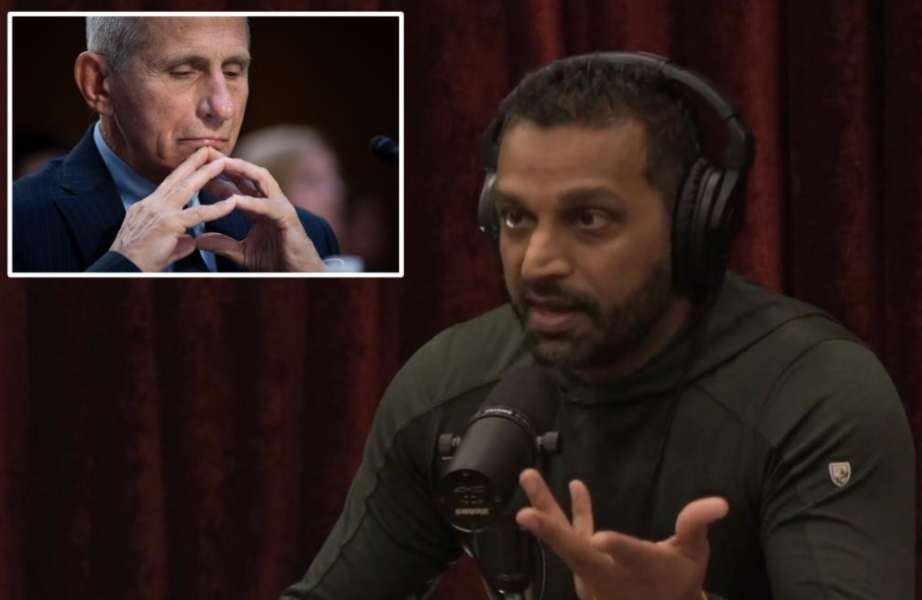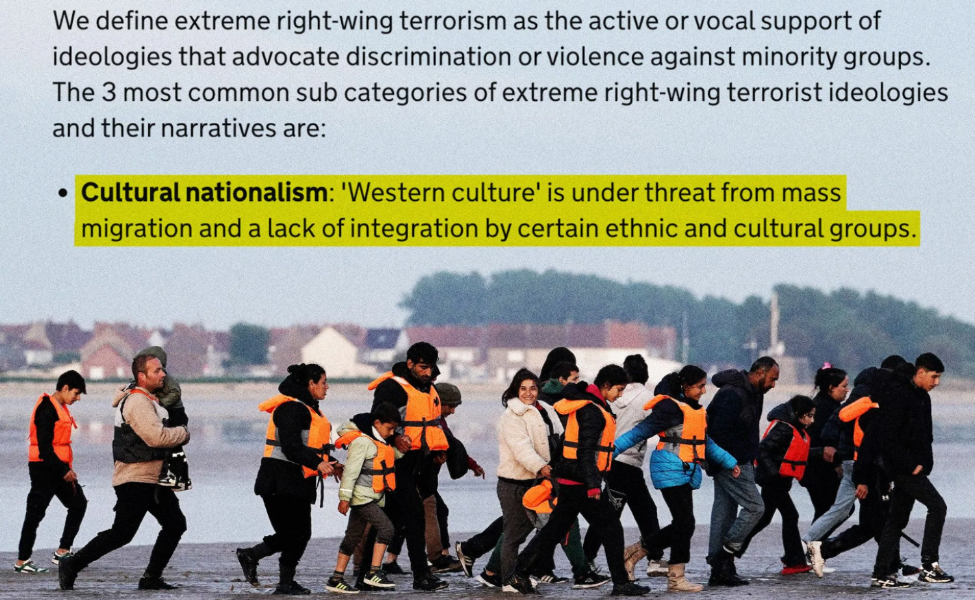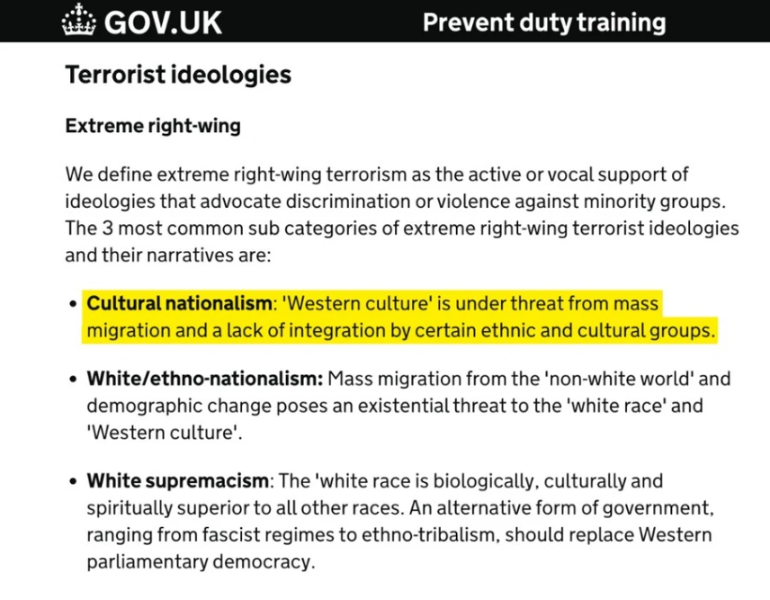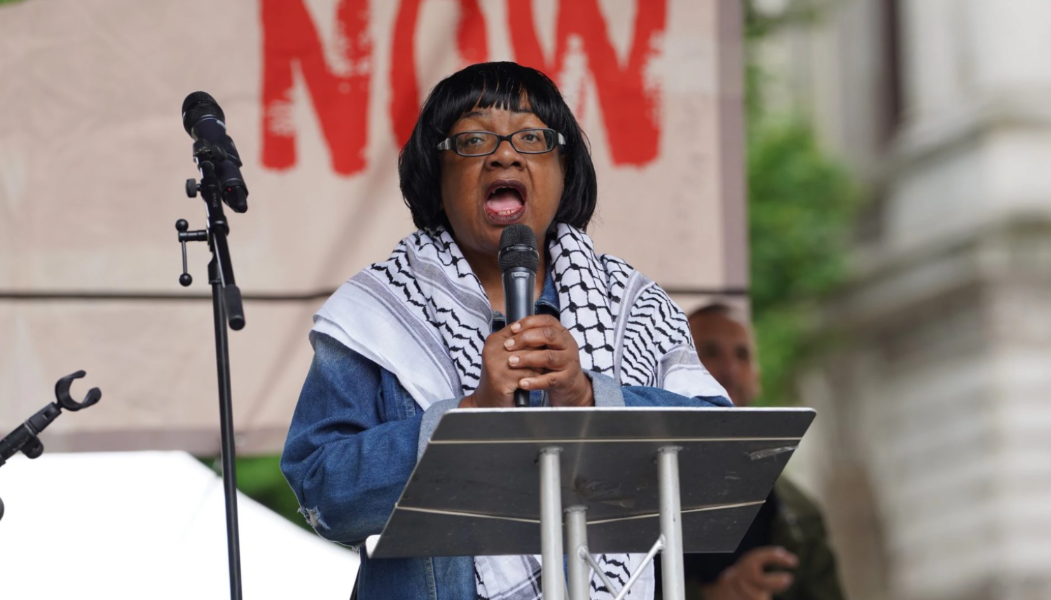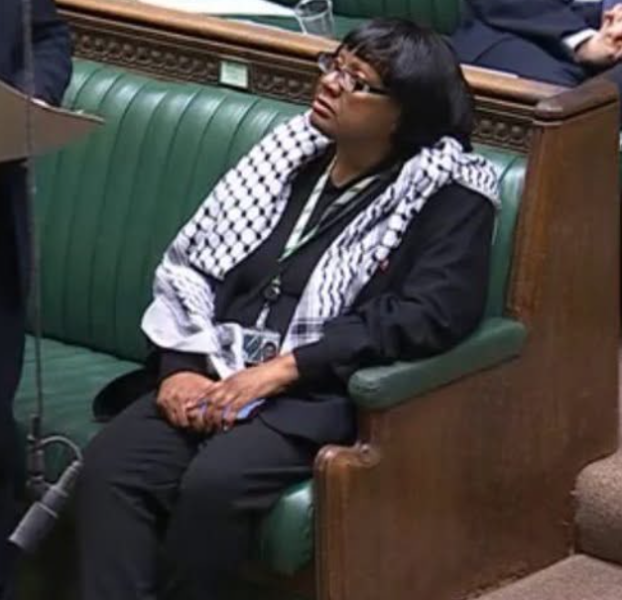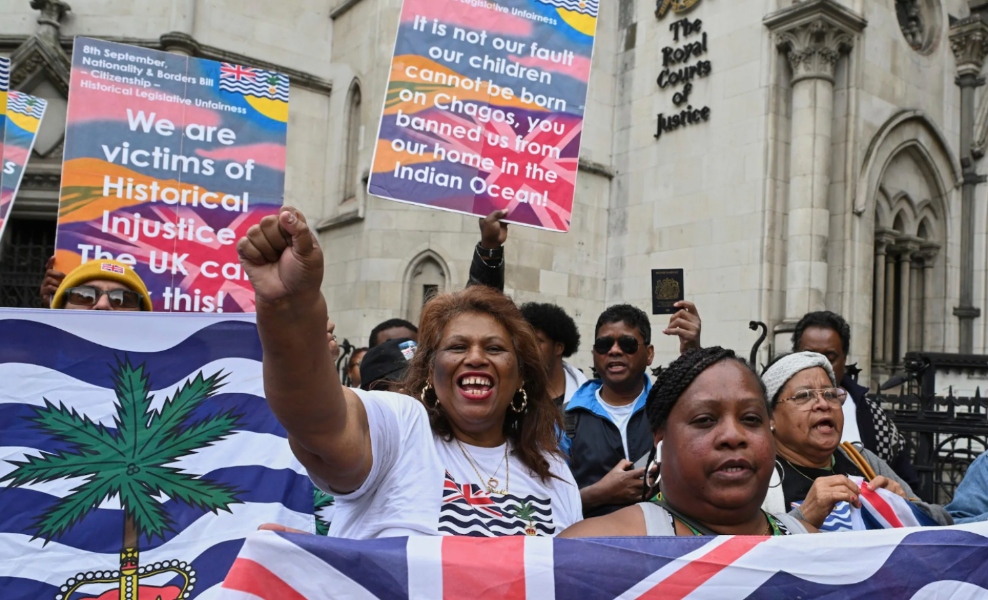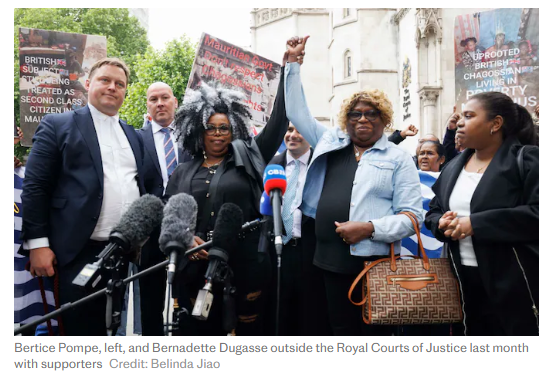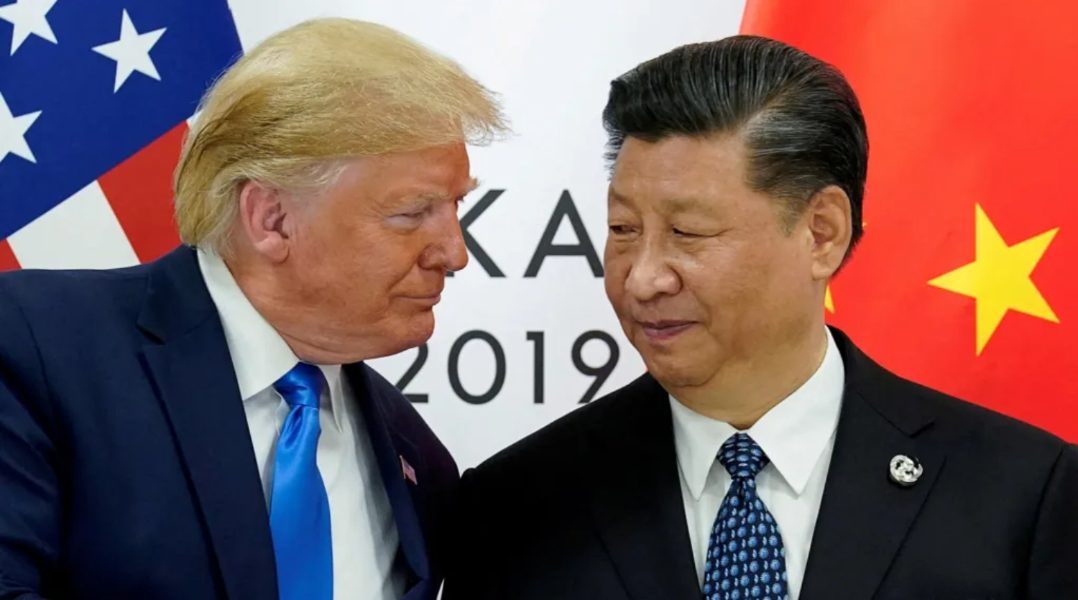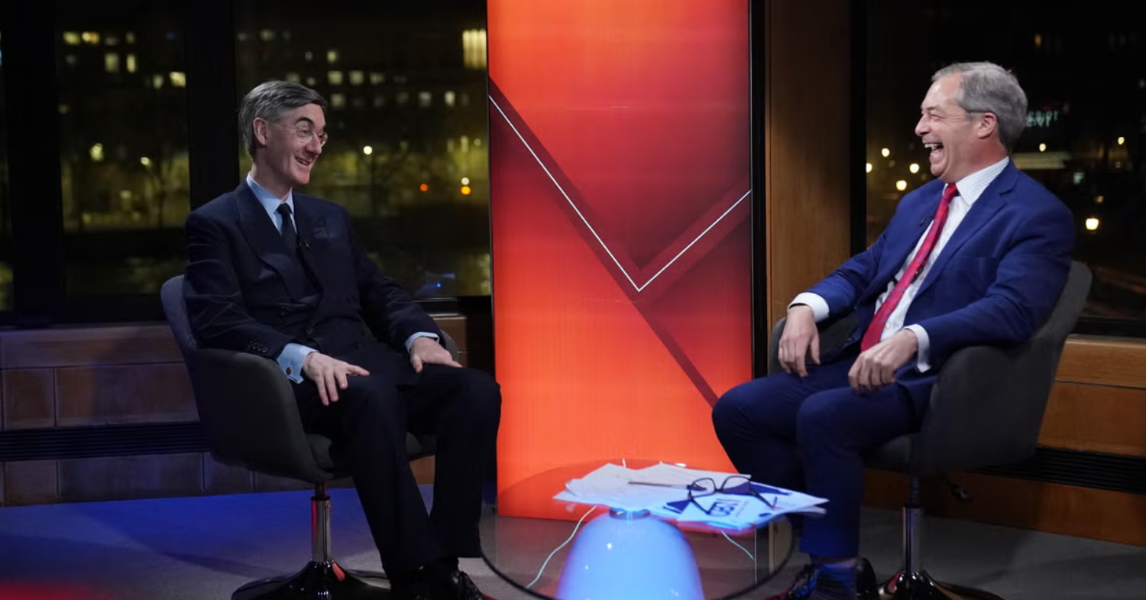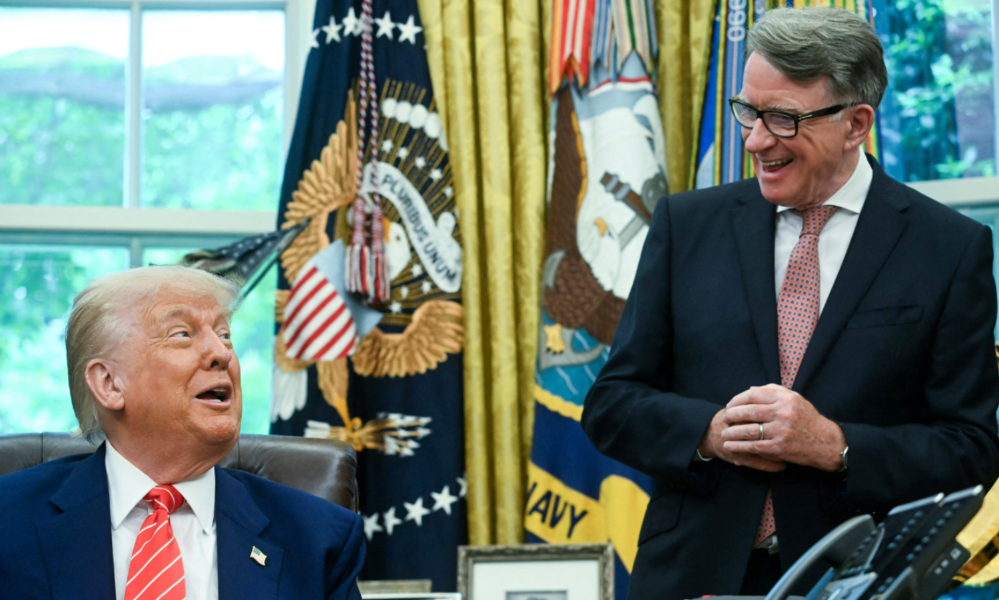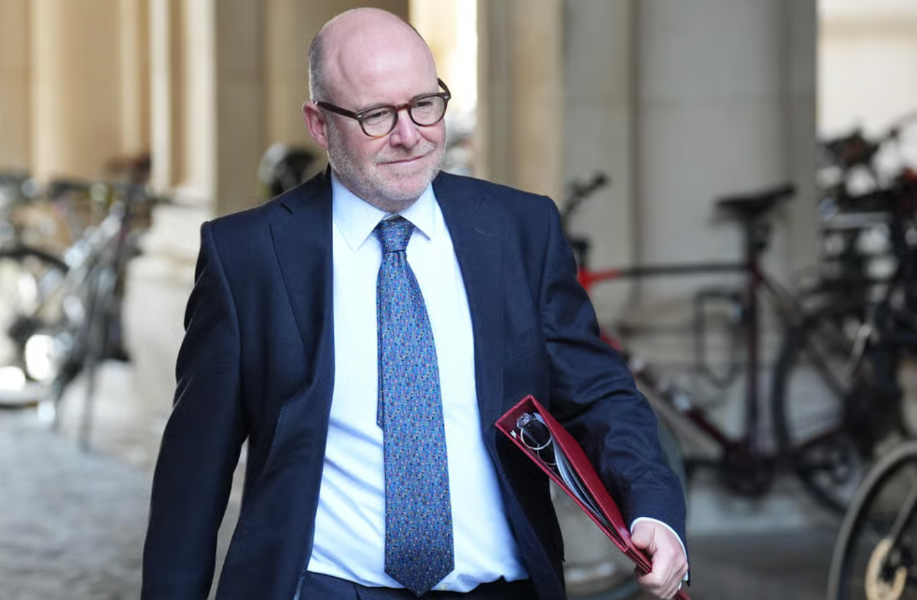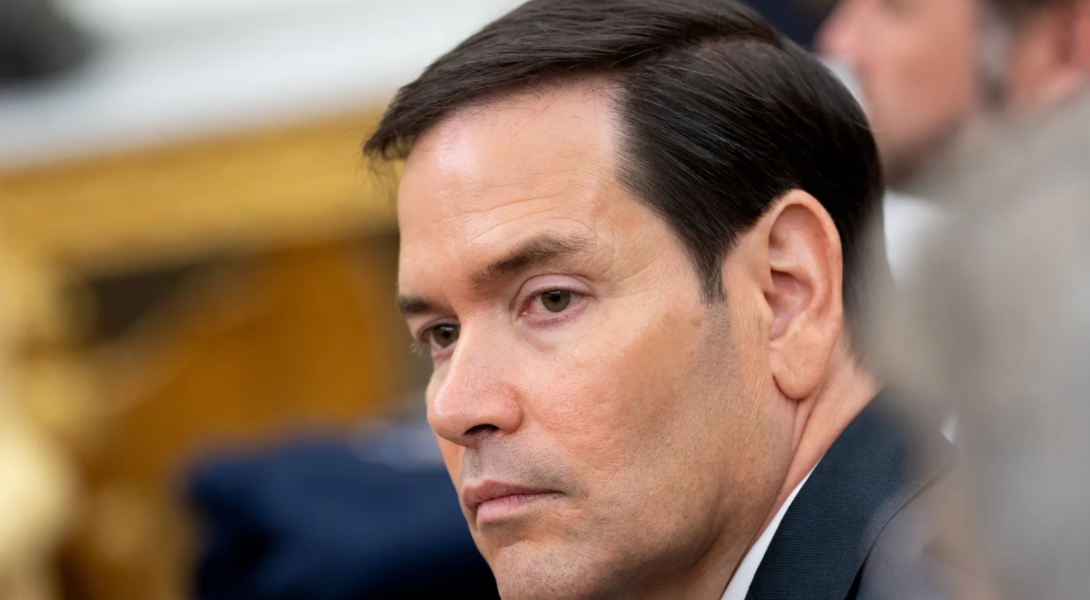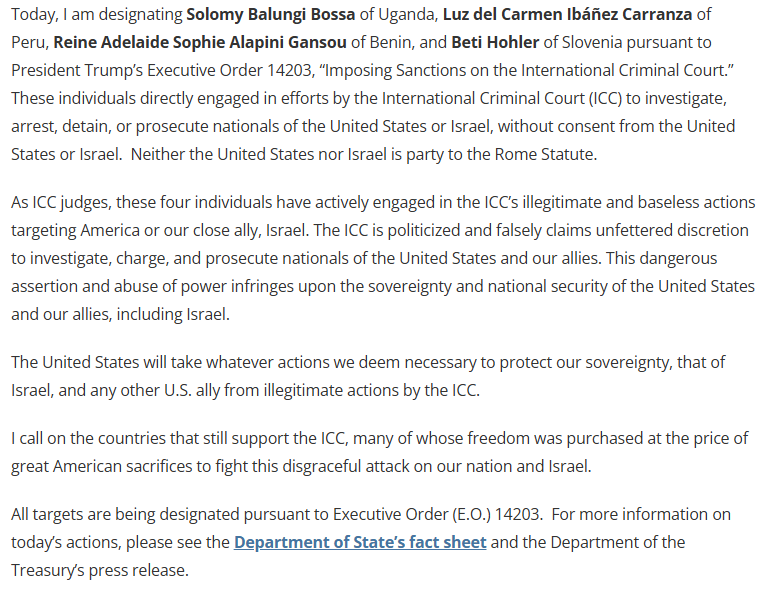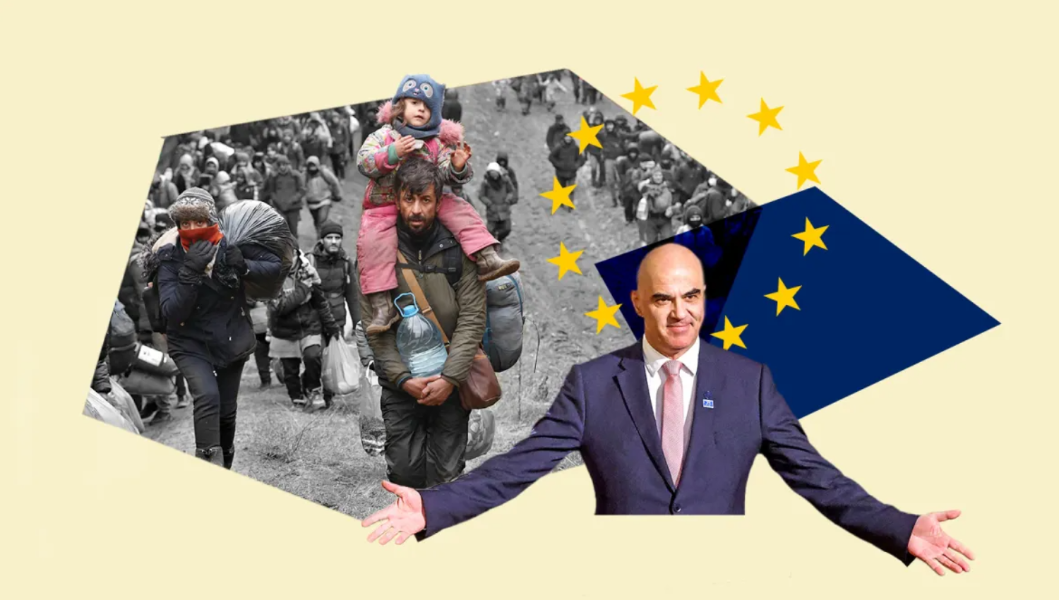-
Posts
10,781 -
Joined
-
Last visited
Content Type
Events
Forums
Downloads
Quizzes
Gallery
Blogs
Everything posted by Social Media
-
FBI Uncovers Key Devices in COVID Origins Probe: Kash Patel Signals Breakthrough FBI Director Kash Patel has announced what he described as a major development in the ongoing investigation into the origins of COVID-19, revealing that devices used by Dr. Anthony Fauci during the early days of the pandemic have recently been recovered. Patel, speaking with podcast host Joe Rogan, shared the news that these devices — including phones — were located just days ago after years of searching. “They had always been looking for phones and devices he used while he was back in Trump one [the first Trump administration] during COVID, and nobody had found it until two days ago,” Patel said during an appearance on The Joe Rogan Experience. The discovery could potentially shed new light on the early federal response to the coronavirus outbreak, though Patel was quick to caution against jumping to conclusions about what the devices may contain. “Everybody listening to us shouldn’t jump to the conclusion [that] everything’s in there. Maybe it’s deleted, maybe it’s not, but at least we found it, and at least now we can tell people that we have been looking because it is of public importance.” Dr. Anthony Fauci, who served as one of the nation's top medical advisors throughout the pandemic, has remained a contentious figure, particularly among conservatives who have criticized his shifting guidance on issues like mask mandates and lockdowns. His actions during the early days of COVID have been under intense scrutiny, and the newly recovered devices may prove crucial in understanding the decisions made during that chaotic period. Joe Biden issued a preemptive pardon for Fauci, shielding him from potential prosecution at a time when Republicans were poised to regain control of the White House, House of Representatives, and the Senate. Trump has repeatedly blasted that decision, calling the pardon “VOID, VACANT, AND OF NO FURTHER FORCE OR EFFECT” in a post on TruthSocial in March. Despite Trump’s condemnation, the pardon remains legally valid. In parallel with this investigation, U.S. intelligence agencies such as the FBI and the CIA have publicly stated that COVID-19 most likely originated from a lab leak in Wuhan, China. The facility in question had reportedly been engaged in various coronavirus experiments prior to the pandemic. Once widely dismissed as a conspiracy theory, the lab leak hypothesis has gained renewed credibility, prompting a reevaluation of early pandemic narratives. Dr. Fauci has consistently denied allegations that he suppressed information supporting the lab leak theory. In testimony before the House Select Subcommittee on the Coronavirus Pandemic last year, he defended his handling of the situation and rejected claims of a cover-up. With the discovery of Fauci’s early pandemic devices, investigators now have access to potential new evidence. Whether the content will offer critical insights or turn out to be inconsequential remains to be seen. But for those who have long sought accountability and transparency about how the crisis unfolded, Patel’s announcement marks a significant — if still uncertain — step forward. Adapted by ASEAN Now from NYP 2025-06-09
- 96 replies
-
- 10
-

-

-
Prevent Under Fire for Labeling Migration Concerns as Terrorist Ideology The UK Government's counter-extremism programme, Prevent, has come under intense scrutiny following revelations that it categorizes concern over mass migration as part of a "terrorist ideology." According to official training materials, beliefs linked to "cultural nationalism" — including fears that Western culture is under threat from immigration and poor integration — may warrant referral for deradicalisation. The controversial classification appears in Prevent's "refresher awareness" course, available on the government’s own website. It identifies "cultural nationalism" as a common sub-category of extreme Right-wing ideologies, grouping it alongside white supremacism and ethno-nationalism. The course explicitly states that those who believe Western identity is endangered by migration could be flagged by authorities. A Home Office spokesperson attempted to justify the programme, saying, "Prevent is not about restricting debate or free speech, but about protecting those susceptible to radicalisation." However, critics argue that Prevent’s guidelines dangerously conflate mainstream political views with extremist beliefs. Lord Young, general secretary of the Free Speech Union, has raised concerns in a letter to Home Secretary Yvette Cooper, warning that the broad definition could implicate even prominent political figures. He noted that Robert Jenrick, the shadow justice secretary, might fall within scope because of a previous statement where he warned that "excessive, uncontrolled migration threatens to cannibalise the compassion of the British public." In a striking example, Lord Young suggested that even Prime Minister Sir Keir Starmer could be targeted under the criteria. Starmer recently stated, “Without fair immigration rules, we risk becoming an island of strangers, not a nation that walks forward together.” The controversy has reignited broader concerns about the Prevent programme’s credibility and effectiveness. A damning report by Sir William Shawcross two years ago revealed that Prevent had misallocated funds to extremist organisations and failed to intervene in multiple cases that later culminated in violence. One particularly glaring failure was the case of Axel Rudakubana, who went on to commit murder in Southport despite being referred to Prevent three separate times. Professor Ian Acheson, a former government adviser on extremism, criticised the current training framework, arguing it wrongly prioritises thought over action. “We are now beginning to see the consequences of a referral mechanism built on training like this which skews away from suspicion by conduct to the mere possession of beliefs that are perfectly legitimate but regarded by Prevent policy wonks as 'problematic,'” he said. As the debate intensifies, the Prevent programme finds itself at a crossroads. While intended to safeguard the public from radicalisation and terror, its methods — and its definitions — are increasingly being viewed as threats to civil liberties and democratic discourse. Adapted by ASEAN Now from The Telegraph 2025-06-09
-
Diane Abbott Condemns Starmer’s Immigration Rhetoric as Deeply Racist Veteran MP Diane Abbott has sharply criticised Prime Minister Keir Starmer, calling his recent immigration speech “fundamentally racist” and accusing him of aligning with right-wing populist rhetoric. Speaking at a mass anti-austerity rally in London, the UK’s first Black woman MP voiced alarm at the language used by Starmer in a speech where he described Britain as potentially becoming an “island of strangers.” Abbott, addressing the crowd gathered for the demonstration organised by The People’s Assembly, said she was “very disturbed” by Starmer’s comments. “He talked about closing the book on a squalid chapter for our politics – immigrants represent a squalid chapter,” she said. “He talked about how he thought immigration has done incalculable damage to this green and pleasant land, which, of course, is nonsense – immigrants built this land.” The Prime Minister’s remarks, delivered last month as part of a new government initiative to tighten immigration rules, have drawn criticism from many on the political left. Abbott went so far as to compare Starmer’s language to Enoch Powell’s infamous “Rivers of Blood” speech of 1968, which has long been seen as a turning point in the legitimisation of xenophobic rhetoric in British politics. “He talked about closing the book on a squalid chapter for our politics – immigrants represent a squalid chapter,” Abbott repeated. “And finally, he said we risk becoming an island of strangers. I thought that was a fundamentally racist thing to say. It is contrary to Britain’s history.” She also questioned the political strategy behind the Prime Minister’s rhetoric, accusing him of mimicking far-right figures in an attempt to claw back support. “I think Keir Starmer is quite wrong to say that the way that you beat Reform is to copy Reform,” she said, referencing Nigel Farage’s Reform Party. The anti-austerity march brought together thousands of demonstrators in central London, unified in opposition to the Government’s economic programme, which includes spending cuts and welfare reforms. Alongside Abbott were representatives from several left-wing organisations, including the Green Party, the RMT union, the NEU, and the Revolutionary Communist Party. A spokesperson for The People’s Assembly condemned the government’s policies, stating: “Real tough choices would be for a Labour government to tax the rich and their hidden wealth, to fund public services, fair pay, investment in communities and the NHS.” Pressure is mounting on Starmer from within his own party, particularly from senior figures on the left. Recently, the Prime Minister reversed a controversial plan to cut the winter fuel allowance, a move that would have impacted 10 million pensioners. A major change to the two-child benefit cap is also reportedly under consideration, amid widespread concern over its contribution to child poverty. Further evidence of internal discord emerged with the revelation of a confidential memo from Deputy Prime Minister Angela Rayner to Chancellor Rachel Reeves. The memo, disclosed by The Telegraph, advocated for increased taxation instead of spending cuts to address budgetary gaps—a clear sign of policy disagreement at the top of government. Abbott’s position within the Labour Party has been under scrutiny since 2023, when she had the whip withdrawn over a letter she wrote to the Observer in which she controversially argued that Jews could suffer prejudice but not racism. Though she apologised, the incident cast doubt on her future as a Labour candidate. In the lead-up to the most recent general election, she was reinstated, but speculation persisted that she would be barred from standing again in her long-held Hackney North and Stoke Newington constituency. After growing political pressure, Starmer clarified that she was “free to stand” if she chose to. Now the longest-serving woman MP in the House of Commons, Diane Abbott remains a powerful voice on the left, continuing to challenge her party’s direction under Starmer’s leadership. Adapted by ASEAN Now from The Telegraph 2025-06-09
-
US Raises Alarm Over Proposed Chinese Embassy Near London’s Financial Nerve Centre Tensions between the United Kingdom and the United States have deepened over the proposed construction of a massive Chinese embassy complex in central London, with senior US officials warning it could pose a serious espionage threat to financial data and infrastructure critical to both countries. The embassy, which would be China’s largest in Europe, is planned for Royal Mint Court, a sensitive location between the City of London and Canary Wharf and close to three major data centres. The site also lies above what experts describe as a hub of critical “dark cabling” that supports key communications for the financial services sector. Although the proposal was previously blocked under the former UK government following security advice from British intelligence, it has been revived in recent months after lobbying from China’s President Xi Jinping. Now, the White House has issued a rare and explicit warning to Downing Street. “The United States is deeply concerned about providing China with potential access to the sensitive communications of one of our closest allies,” said a senior US official. That concern comes amid ongoing negotiations over the UK-US trade agreement, which must be finalised by July 9 or risk subjecting UK steel exports to steep 50 percent tariffs. While declining to directly link the embassy decision to the trade deal, the official added pointedly, “The United States expects that all decisions will be taken with our (both US and UK) national security interests in mind and after thorough mitigation as recommended and approved by counterintelligence professionals.” The issue has been raised at the highest levels. President Donald Trump is understood to have personally urged Prime Minister Keir Starmer to block the embassy, and the matter has come up during bilateral trade talks. Some US diplomats have reportedly suggested that intelligence-sharing with the UK could be re-evaluated if the embassy is approved. A memo sent to the US National Security Council by members of the Inter-Parliamentary Alliance on China (Ipac) warned that the Royal Mint Court site “feeds the City of London,” raising alarms about potential data interception. John Moolenaar, the Republican chair of the House China Committee, said, “If reports are accurate, placing a PRC embassy of unprecedented size over sensitive cabling that supports US and UK financial systems would pose an unacceptable risk to our institutions. The Chinese Communist Party has a clear track record of targeting critical infrastructure. This development would raise serious concerns in the United States and could be viewed as an act of strategic overreach by Beijing and a curious error in judgment by London.” Luke de Pulford, executive director of Ipac, said the issue had become a significant flashpoint in trade talks. “The Chinese mega-embassy has become a flashpoint in UK-US trade talks and it’s staggering that the White House had to publicly confirm the cabling risk just to defend its own financial system,” he said. “It’s time to send Xi Jinping a clear message: no matter the pressure or coercion, the UK and US won’t trade away national security, and this embassy isn’t happening.” Adapted by ASEAN Now from The Times 2025-06-09
-

Israel Hamas War the Widening Middle East Conflict
Social Media replied to Social Media's topic in The War in Israel
@bannork a post has been removed that has its own topic which has been running for some time here, please continue in the dedicated topic -

I Have Changed My Mind Since Oct 7 Terror Attack, Have You?
Social Media replied to SamSaraburi's topic in The War in Israel
Nothing but a trolling topic //closed// -

I Have Changed My Mind Since Oct 7 Terror Attack, Have You?
Social Media replied to SamSaraburi's topic in The War in Israel
@SamSaraburi another troll baiting post has been removed. -
Kilmar Abrego Garcia, a Maryland man who was mistakenly deported to El Salvador earlier this year, has been returned to the United States to face serious federal charges tied to human trafficking. His return comes after a prolonged legal standoff between the Trump administration and the federal judiciary over the government’s obligation to comply with a court order mandating his return. Attorney General Pam Bondi announced the development on Friday, confirming that Abrego Garcia now faces prosecution in the Middle District of Tennessee. He has been indicted on two counts: conspiracy to unlawfully transport illegal aliens for financial gain and unlawful transportation of illegal aliens for financial gain. “Abrego Garcia has landed in the United States to face justice,” Bondi declared, thanking Salvadoran President Nayib Bukele for cooperating with the extradition. The charges stem from a wide-reaching conspiracy dating back to at least 2016. According to the indictment, Abrego Garcia was part of a network that unlawfully transported thousands of undocumented migrants across the United States, many of whom were allegedly affiliated with the MS-13 gang. “Knowingly and unlawfully,” the document states, “they transported thousands of undocumented aliens who had no authorization to be present in the United States, and many of whom were MS-13 members and associates.” Despite these allegations, Abrego Garcia and his family deny any links to MS-13, claiming instead that he fled El Salvador to escape the very gang violence now associated with his name. His lawyer, Simon Sandoval-Moshenberg, has criticized the Trump administration for “playing games” with the legal system and insists that his client belongs in immigration court rather than a federal criminal court. Abrego Garcia’s arrest centers around a 2022 traffic stop in Tennessee, where he was found driving a Chevrolet Suburban with nine undocumented Hispanic men lacking identification or luggage. The indictment details how he and various unnamed co-conspirators, including individuals identified only as CC-1, CC-2, and CC-6, moved undocumented migrants from Texas to Maryland and other states, often fabricating cover stories to mislead law enforcement during transports. The scheme also allegedly involved controlling migrants’ cell phone access to prevent outside contact and to maintain control during transit. Although prosecutors have painted Abrego Garcia as a significant figure in this trafficking operation, they do not depict him as the mastermind. Instead, he appears as one cog in a much larger and more complex smuggling machine. Notably, the indictment references a 2021 tragedy in which over 50 migrants died in Mexico during a failed transport attempt organized by one of the alleged co-conspirators. Department of Homeland Security Secretary Kristi Noem responded to the indictment with sharp criticism, accusing the media and political opponents of defending Abrego Garcia. “For the last 2 months, the media and Democrats have burnt to the ground any last shred of credibility they had left as they glorified Kilmar Abrego Garcia, a known MS13 gang member, human trafficker, and serial domestic abuser,” she said. “Justice awaits this Salvadoran man.” Abrego Garcia’s March deportation to El Salvador was labeled an “administrative error” by Immigration and Customs Enforcement. He spent several weeks in a notorious mega-prison before being moved to another facility. His removal had violated a 2019 court order barring his deportation to El Salvador due to the threat of gang violence—an order the administration has reportedly considered challenging or bypassing by removing him to a third country. The case has become a flashpoint in U.S. immigration politics, highlighting tensions between the executive branch and the judiciary. While Abrego Garcia is now back on U.S. soil, his legal future remains uncertain. Officials have not ruled out another deportation, pending the outcome of his criminal case and the possible revocation of earlier judicial protections. Related Topics: White House Defends Abrego Garcia Deportation, Calling Return "Out of the Question" El Salvador will not return Kilmar Ábrego García deported from the US in error Adapted by ASEAN Now from CNN 2025-06-07
-
Chagossians Appeal to UN Over Starmer’s Controversial Island Deal The UK government’s agreement to transfer sovereignty of the Chagos Islands to Mauritius while leasing back a military base has come under fresh scrutiny, as campaigners escalate their challenge to the United Nations. Sir Keir Starmer’s deal, which has already faced legal resistance in the UK, is now being reported to the UN’s human rights committee in Geneva. Critics claim the agreement violates the fundamental rights of displaced Chagossians and ignores their long-standing demand to return to their homeland. Bernadette Dugasse and Bertrice Pompe, British citizens originally from the Chagos Islands, are leading the charge against the deal. Last month, they made an urgent appeal to the High Court in an attempt to halt the agreement before it was finalized. The dramatic overnight injunction they secured was overturned the following day, and the UK proceeded with its plan to pay Mauritius up to £30 billion over 99 years in exchange for maintaining a military presence on Diego Garcia, the largest island in the archipelago. Undeterred, Dugasse and Pompe are now turning to the UN, asking its human rights committee to issue an advisory opinion on the legality of the UK-Mauritius deal. They argue that it breaches five articles of the International Covenant on Civil and Political Rights, particularly those relating to self-determination, freedom of movement, the right to return, and minority protections. In their letter to the committee, seen by The Telegraph, the campaigners assert that the agreement “would amount to a definitive and irreversible endorsement of a continuing violation originally initiated by the colonial power.” The letter continues: “By excluding the Chagossian people from the process and de facto accepting their permanent displacement, the agreement entrenches the denial of their right to return and the effective exercise of their cultural, spiritual rights.” Although the UN committee lacks the authority to cancel the deal, its opinion could carry significant diplomatic weight and put pressure on the UK government to reconsider its approach. This would place the UN human rights committee in a potentially contentious position with the International Court of Justice, which in 2019 ruled that the UK should relinquish control of the Chagos Islands to Mauritius. Opposition to the deal is also emerging within the UK Parliament. Members from the Conservative and Reform parties, as well as peers in the House of Lords, have voiced strong objections. They argue that the agreement disregards both national security interests and the moral obligation to the Chagossian people. Nonetheless, the UK government maintains that the military base is crucial and must continue operating within a legal framework under international law. The Chagossians were forcibly removed from their homeland between the late 1960s and early 1970s to make room for the military installation. Today, between 1,400 and 1,700 people remain in exile, many of whom feel betrayed by the lack of consultation and exclusion from the current agreement. Critics emphasize that the deal contains no provisions for allowing displaced islanders to return to Diego Garcia. Bertrice Pompe declared, “The fight is not over. There is nothing in that treaty for Chagossians and we will fight.” Her sentiment reflects growing frustration among the diaspora, who view the agreement as yet another instance of colonial-era injustice being perpetuated by modern governments. Toby Noskwith, who coordinated the recent High Court action, added: “I pity the poor souls in the No 10 press office who are being ordered to justify Keir Starmer’s betrayal of the Chagossian people. We’re looking forward to the explanation of why the UN human rights committee doesn’t matter. Not pausing the Chagos deal until the Committee rules is indefensible.” As the campaign moves to an international stage, the outcome could have lasting implications for the future of the Chagossian people—and the UK’s standing on human rights and colonial accountability. Adapted by ASEAN Now from The Telegraph 2025-06-07
-
Donald Trump has confirmed plans to visit China following what he described as a “very good” phone conversation with Chinese President Xi Jinping, breaking a months-long silence between the two leaders that began when the US launched a trade war against Beijing earlier this year. Trump, speaking from the Oval Office alongside German Chancellor Friedrich Merz, said that he and Xi had extended mutual invitations to visit each other's countries, adding, “We both accepted, so I will be going there with the First Lady at a certain point and he will be coming here hopefully with the First Lady of China.” Although Trump announced the reciprocal invites, the Chinese government has only confirmed its own invitation for Trump to visit China. The call, which reportedly lasted an hour and a half, was described by Trump on social media as productive and “resulted in a very positive conclusion for both countries,” with trade being the central focus. Chinese state media confirmed the conversation took place and said it was initiated at the request of the White House. According to China’s official Xinhua news agency, Xi used the call to urge the US to “withdraw the negative measures it has taken against China.” He also emphasized that China had kept its promises and that both countries should honor the consensus reached during previous negotiations in Geneva. That agreement, reached in May, was supposed to significantly lower trade tariffs: the US agreed to reduce tariffs on Chinese goods to 30%, while Beijing cut its tariffs on US imports to 10% and pledged to ease restrictions on critical mineral exports. Both sides were given 90 days to work toward a broader trade pact. However, the truce quickly began to unravel. Washington accused China of failing to resume exports of vital rare earth minerals and magnets used in car and computer production. China’s Ministry of Commerce denied the allegations and countered that it was the US who breached the deal by imposing fresh restrictions on semiconductor design software and revoking the visas of Chinese students. Speaking after the call, Trump insisted the issue of rare earth elements was now resolved, saying, “There should no longer be any questions respecting the complexity of Rare Earth products.” He added that Chinese students were still welcome in the US, stating, “Chinese students can come, no problem, no problem – it’s an honour to have them frankly. But we want to check them.” Beyond trade, the conversation turned toward Taiwan, a persistent point of tension between the two global powers. Chinese media reported that Xi warned the US to exercise caution in its dealings with Taiwan, particularly after recent comments by US Defense Secretary Pete Hegseth, who told an audience at the Shangri-La Dialogue in Singapore that China posed an “imminent” threat to the self-ruled island. Xi reportedly cautioned that the US should “handle the Taiwan issue prudently to prevent a small number of Taiwan Independence separatists from dragging China and the US into a dangerous situation of conflict and confrontation.” China considers Taiwan a breakaway province destined to be reunified with the mainland, by force if necessary. The US does not officially recognize Taiwan’s independence but maintains military support for the island under the long-standing One China policy. The renewed communication between Trump and Xi follows months of uncertainty and rising tension. Since taking office, Trump had repeatedly hinted that a call or meeting with Xi was imminent, but nothing materialized until this week. Growing impatient, Trump had recently expressed his frustration online, writing, “I like President Xi of China, always have, and always will, but he is VERY TOUGH, AND EXTREMELY HARD TO MAKE A DEAL WITH!” While Trump relishes direct involvement in negotiations, Beijing traditionally prefers behind-the-scenes diplomacy led by designated officials. The Chinese leadership is cautious about high-level engagements being seen as concessions to foreign pressure. As both sides navigate this complex diplomatic terrain, Trump’s planned visit to China may signal a tentative thaw in a relationship fraught with economic, political, and strategic challenges. Adapted by ASEAN Now from BBC 2025-06-07
-
The Rise of GB News and the Making of a Mini-Murdoch There is growing reason to be concerned as GB News edges closer to rivaling the BBC in ratings. At the centre of this media shift stands Sir Paul Marshall, hedge fund manager and media investor, whose ambitions and ideological bearings are reshaping the UK’s broadcast landscape. A recent speech he delivered at Oxford, titled “Reflections of a Reluctant Media Owner,” revealed not only his motives but also the contradictions in his vision for British journalism. Sir Paul owns significant stakes in GB News, Unherd, and The Spectator, and predicts a near future where just two dominant news outlets will remain: the BBC and GB News. Despite GB News reportedly losing over £100 million so far, he seems undeterred. His analysis of the media landscape starts conventionally enough. He observes the dominance of right-leaning national newspapers and criticises the BBC for perceived left-wing bias, echoing a common view on the political right. Yet, for someone ostensibly opposed to tribalism, his own views seem deeply tribal. He champions The Times as the only paper offering genuine political diversity, which might surprise its more critical readers. His disdain for the “metropolitan” worldview is clear, and he considers the BBC's fact-checking unit, BBC Verify, “an abuse of taxpayer money” that “should be shut down.” More broadly, he describes the BBC as “the propaganda arm of the state”—a phrase used not long ago by GB News host Laurence Fox, who once tweeted, “You cannot loathe or despise the state propaganda arm @ [BBC] enough.” Fox's recent reaction to a Sky News report about a car crashing into Liverpool fans—implying an establishment cover-up—speaks volumes about the conspiratorial undercurrents in GB News’ ideological orbit. That the perpetrator turned out to be a 53-year-old white former royal marine and that no riots occurred, contrary to what Fox appeared to predict, underscores how inflammatory speculation is sometimes at odds with reality. While Sir Paul says he values heterodox thinking and open-mindedness, the roster at GB News—from Nigel Farage to Dan Wootton and climate change denier Neil Oliver—suggests otherwise. If his intention was to correct for bias, why assemble a cast from such a narrow ideological band? What societal problem does this investment in partisan television actually aim to solve? GB News occasionally outpaces the BBC in ratings, particularly due to its active social media presence. But ratings are not the same as trust. Surveys by YouGov in 2023 and 2024 found that the BBC consistently outperformed GB News on public trust. The Reuters Institute confirmed this, placing the BBC at 62 percent trusted, while GB News managed only 29 percent. Sir Paul criticises BBC programming decisions dating back decades, such as the abandonment of playing the national anthem daily under Tony Blair, which he says marked the moment patriotism was “quietly erased.” But what’s missing in his speech is any acknowledgment that extreme partisanship may not be the answer to perceived bias. Nor does he address whether a billionaire hedge fund manager is best suited to determine what impartial media should look like. As someone mentioned by name in Sir Paul’s speech, I take particular interest in these contradictions. He describes me as one of the “biggest advocates of censorship and control narrative,” alongside Hillary Clinton and Ursula von der Leyen. This is presumably because of my role on Meta’s Oversight Board, which, contrary to his portrayal, often votes to restore wrongly removed content in the name of protecting free expression. Free speech absolutists like Fox and Elon Musk see any moderation as censorship. Sir Paul doesn’t clearly state his own position. He worries about conspiracy theories and tribalism overtaking truth, but that seems precisely the purpose GB News has come to serve. When social media spread disinformation after the Southport killings—fueling hatred and violence against Muslims—some of those posts, including calls to burn mosques, remained online. Is removing such content censorship or responsible moderation? Are efforts to verify facts and de-escalate hatred really elitist overreach? Sir Paul has achieved much: founding Unherd, sustaining The Spectator, and supporting philanthropic causes. But as he charts a course toward becoming a mini-Murdoch, it’s essential we scrutinize the consequences. His growing media empire doesn’t just challenge the BBC’s ratings—it challenges our collective understanding of truth, balance, and responsibility in public discourse. Adapted by ASEAN Now from The Independent 2025-06-07
-
Preparing for the Unthinkable: Military Chiefs Warn of Double War Threat from Russia and China Military leaders are sounding alarms over what they describe as a looming "nightmare scenario" in which the West faces simultaneous wars against both Russia and China. According to General Sir Patrick Sanders, former chief of the general staff, the Ministry of Defence has already begun drawing up contingency plans for a crisis that could strike within the next two years. This warning comes amid growing concern that NATO’s current pace of rearmament is insufficient to deter coordinated threats from rival powers. General Sanders, who co-hosts The General and The Journalist podcast, revealed that former military chiefs are already “thinking through and wargaming” how such a conflict could unfold. “It really worries them,” he said. The fear is not hypothetical. With global tensions rising and military capabilities strained, the UK and its NATO allies are facing what Sanders called “double jeopardy, with global consequences.” He described a scenario in which China launches a large-scale invasion of Taiwan, forcing the United States to divert its military resources away from Europe. Russia, seizing the moment, could then launch a calculated incursion into NATO territory—perhaps in the Baltics or even the remote Norwegian archipelago of Svalbard—where it could quickly achieve local dominance. “Having quickly seized limited objectives, limited territory, they sit back behind a nuclear umbrella and they dare NATO to act,” Sanders said. “Now that’s incredibly high stakes, but the payoff for Putin would be very, very high.” The stakes, according to Sanders, would be nothing less than the credibility and survival of NATO itself. Failure to repel such an incursion would, he warned, “effectively mean the end of NATO.” China has set 2027 as the target year by which it aims to have the military capability to invade Taiwan. However, the timeline may be even shorter. US defence secretary Pete Hegseth recently described China’s threat to Taiwan as “imminent.” In this context, General Sanders has joined a growing chorus calling for urgent action, arguing that Britain must accelerate its rearmament now if it hopes to avoid catastrophe. “The good thing about deterrence is that if it works, you never have to go to war,” he said. The general’s comments come as Prime Minister Sir Keir Starmer faces criticism for not committing to a firm timeline on defence spending. While Starmer has launched an ambitious strategic defence review (SDR), he has only stated an “ambition” to raise spending to 3 per cent of GDP by 2034—far short of the 3.5 per cent push advocated by NATO secretary-general Mark Rutte. Sanders praised the SDR’s scale but found fault in its vagueness. “My real concern is this isn’t a plan. It’s clearly been put through the Whitehall blanderiser,” he said. “There are almost no hard dates, no deadlines, no lists of capabilities — and those are the things that will give effect to the ambition.” He emphasised that urgent action should be prioritised over long-term procurement projects, calling for a “front-loaded” investment approach that boosts lethality now. “We can make the force that we have now much, much more lethal, so that relative size matters much less than our ability to inflict losses on much larger forces in a defensive battle,” Sanders explained. He pointed to Ukraine as an example, arguing that its success in resisting Russian aggression offers a model for how smaller, well-equipped forces can deliver effective resistance. The warning from Sanders is stark: the UK and its allies may soon be forced to confront multiple adversaries simultaneously, and unless drastic steps are taken now, they risk being unprepared for a crisis of historic proportions. Adapted by ASEAN Now from The Times 2025-06-07
-
Title: Lord Mandelson Bridges Political Worlds in Washington Lord Peter Mandelson, the British ambassador to the United States, offered a striking reflection on the political parallels between President Donald Trump and Labour leader Keir Starmer during a lively event in Washington D.C. on Thursday night. Surrounded by members of the MAGA elite, Mandelson was honoured with a plaque at Butterworth’s, a Capitol Hill restaurant that has become a social hub for young Trump supporters. Amid the clinking of glasses filled with Hambledon English sparkling wine, Mandelson responded to a call for a speech, half-jokingly admitting, “I don’t know what to say. I do feel that I have finally made it from tribal politician to real diplomat now that I have unveiled the first plaque in my new diplomatic career.” The plaque, which now rests above a French-style sofa in the restaurant, commemorates Mandelson’s first informal meeting there with Raheem Kassam, Butterworth’s co-owner and former adviser to Nigel Farage. “When I came here, I wandered off the streets hungry not knowing what it was. I thought I might get a nice lobster thermidor if I was lucky. I sprawled out on this sofa and we had a wonderful conversation for a long time,” Mandelson recalled. Since his appointment earlier this year, Mandelson has made notable efforts to engage with figures in and around the Trump movement. He has actively courted younger MAGA adherents, inviting them to embassy functions, including one held specifically for voices from "new media." Speaking warmly about Kassam, a close associate of former Trump strategist Steve Bannon, Mandelson observed, “Although we don’t have identical politics, we are familiar with masters of the same drivers that brought our respective figures to power — President Trump in your case and Keir Starmer in mine.” He elaborated that both Trump and Starmer drew their political strength from “angry people who felt they were being unheard by mainstream politics,” adding that this included discontent over the cost of living, unchecked immigration, and “uncontrolled woke culture spreading across institutions.” In a broader reflection on his diplomatic mission, Mandelson said, “I feel that over centuries now, British diplomats here in United States have been creating coalitions that support the special relationship.” Drawing on his experience in the Labour Party, he added, “I have my own classic New Labour experience of fishing for votes across the political spectrum and forging unlikely coalitions, so good luck to you.” He also praised the unique cultural role Butterworth’s plays in Washington, saying, “I just think what you have created here at Butterworth’s is fairly remarkable. You’ve brought the best of British gastro pub food and planted it down here on Capitol Hill. I feel you’ve brought the special relationship up to a new higher level.” Kassam, in return, thanked Mandelson for attending, stating it was important to demonstrate that “Brits back home… can actually work together in His Majesty’s interest.” When asked about the developing fallout between Elon Musk and Donald Trump earlier that day, Mandelson admitted he hadn’t followed it, citing his absence from social media. Nevertheless, he did add diplomatically that “the office of president ought to be respected.” Reflecting with humour on his earlier political life, Mandelson recalled another plaque unveiling from his days as MP for Hartlepool: “With great flourish and great aplomb I ripped back the curtain and there was no plaque. I looked at it slightly bemused and they said, ‘It is on its way it just hasn’t been done yet’ as if that was that.” This latest unveiling, however, went off without a hitch, adding another layer of nuance to Mandelson’s evolving identity as both politician and diplomat — one seemingly at ease navigating unlikely political spaces in the name of diplomacy. Adapted by ASEAN Now from The Times 2025-06-07
-
Title: Lord Hermer’s Past Views on Immigration Stir Tensions Amid Starmer’s Tougher Border Promises Lord Hermer, the UK’s Attorney General, is facing growing scrutiny over past remarks in which he championed the “immense positives” of immigration and urged a fundamental shift in the way it is discussed in British politics. In a 2022 podcast interview recorded before he entered Parliament or assumed his current role, Hermer called for efforts to “alter the popular discourse” on immigration and expressed concern that fear around the issue had become a powerful tool for Right-wing movements like Brexit. Speaking on the Matrix Chambers podcast during a discussion about the Conservative government’s controversial Rwanda deportation policy, Hermer argued that the political Right had long exploited immigration to gain support. “The populist Right are very successful in using immigration and the fear of immigration as a recruitment sergeant or just generally in dominating the kind of political field,” he said. He then posed a challenge to his fellow legal and advocacy professionals: “What can those of us who are passionate about the protection of refugee rights do to try and alter the popular discourse?” Hermer added, “How do we go on the offence more generally in terms of our political culture, either to detoxify the whole debate, or to promote the immense positive things that immigration brings to this country? I speak as a second-generation immigrant to this country. How do we change the debate?” His remarks appear to be at odds with Labour leader Sir Keir Starmer’s more recent stance on immigration. Starmer has pledged to “take back control of our borders” and warned that failing to do so could turn the UK into an “island of strangers.” The contrast between Hermer’s earlier comments and Labour’s tougher rhetoric on border control has raised questions among political opponents and within the party itself. The podcast episode also featured refugee rights expert Raza Husain KC and Sile Reynolds of the advocacy organisation Freedom from Torture. The discussion centred on challenging what Hermer described as a “propagandised post-truth world” and presenting an “alternative vision” of Britain as “a country that welcomes people seeking asylum.” Hermer, born in South Glamorgan to a Jewish family and reportedly a frequent visitor to Israel, has not spoken publicly about his parents’ origins. His appointment to the role of Attorney General came only after being granted a peerage by Starmer last year, despite having no prior political experience. That decision has since come under fire, with critics citing alleged conflicts of interest stemming from Hermer’s previous work as a human rights lawyer. His client list has prompted fierce criticism, including representations for Gerry Adams and an Islamist terrorist who planned to bomb Manchester. These associations have led some, including shadow justice secretary Robert Jenrick, to accuse Hermer of having spent his career “defending Britain’s enemies.” Hermer recently caused further controversy after drawing a historical parallel between politicians who question Britain’s commitment to international legal frameworks like the European Convention on Human Rights (ECHR) and lawmakers in Nazi Germany. He later apologised for the comment but faced renewed calls to resign. The immigration issue continues to dominate headlines. Defence Secretary John Healey admitted this week that Britain had “lost control of its borders” after nearly 1,200 people crossed the Channel in a single day. At the same time, Starmer has pledged to tighten how the UK applies the ECHR, particularly in cases where foreign criminals avoid deportation by invoking the “right to family life.” One such case cited involved an Albanian man who remained in the UK because deporting him would have required his son—who reportedly disliked Albanian chicken nuggets—to leave as well. Adding to the mix, Hermer also previously advised Caribbean nations seeking reparations from Britain for slavery, working with the Caribbean Community (Caricom) as early as 2013. Despite the controversies, a spokesperson for Hermer insisted that the Attorney General is fully aligned with current government immigration policy as laid out in the official white paper. Adapted by ASEAN Now from The Telegraph 2025-06-07
-
Trump Administration Sanctions ICC Judges Over Alleged Targeting of U.S. and Israel The Trump administration has imposed sanctions on four judges of the International Criminal Court (ICC), accusing them of participating in what Secretary of State Marco Rubio described as “illegitimate actions” directed against the United States and Israel. The sanctions are the latest expression of U.S. opposition to the ICC’s investigations into alleged war crimes in Gaza and Afghanistan. “These four individuals have actively engaged in the ICC’s illegitimate and baseless actions targeting America or our close ally, Israel,” Rubio said in a statement Thursday. He asserted that the court’s efforts to investigate, arrest, detain, or prosecute U.S. or Israeli nationals had been undertaken without the consent of either nation. “The ICC is politicized and falsely claims unfettered discretion to investigate, charge, and prosecute nationals of the United States and our allies,” Rubio added. “This dangerous assertion and abuse of power infringes upon the sovereignty and national security of the United States and our allies, including Israel.” The sanctions come in direct response to the ICC’s decision in November to issue arrest warrants for Israeli Prime Minister Benjamin Netanyahu and former Defense Minister Yoav Gallant. The tribunal cited alleged war crimes and crimes against humanity committed in Gaza, where Israel conducted a large-scale military campaign following Hamas’ October 2023 attacks. The court has also been investigating alleged U.S. war crimes committed during the war in Afghanistan. https://www.state.gov/releases/office-of-the-spokesperson/2025/06/imposing-sanctions-in-response-to-the-iccs-illegitimate-actions-targeting-the-united-states-and-israel/ Thursday’s sanctions, enacted under an executive order signed by President Trump in February, freeze all U.S.-based assets held by the judges and require that any such holdings be reported to the Treasury Department. The judges targeted are Solomy Balungi Bossa of Uganda, Luz del Carmen Ibáñez Carranza of Peru, Reine Adelaide Sophie Alapini-Gansou of Benin, and Beti Hohler of Slovenia. According to the administration, all four played roles in the ICC’s pursuit of cases against American or Israeli nationals. The court sharply rebuked the sanctions shortly after the announcement. In a statement, an ICC spokesperson said the measures were “a clear attempt to undermine the independence” of the institution, which is headquartered in The Hague. Although neither the United States nor Israel recognizes the ICC’s jurisdiction, the court has moved forward with investigations and arrest warrants based on allegations of serious violations of international law. The Trump administration has long objected to the ICC’s authority. During Trump’s first term, officials imposed sanctions on court personnel involved in investigations into U.S. actions in Afghanistan. Those sanctions were lifted by the Biden administration in 2021, but Trump’s return to power has renewed efforts to challenge the court’s legitimacy. Rubio made clear that the administration intends to continue using sanctions to push back against international investigations into the actions of the U.S. and its allies. “The United States will take whatever actions we deem necessary to protect our sovereignty, that of Israel, and any other U.S. ally from illegitimate actions by the ICC,” he said. Adapted by ASEAN Now from AXIOS 2025-06-07
-
The European Convention on Human Rights (ECHR) must evolve in response to mounting political tensions over migration, according to Alain Berset, Secretary-General of the Council of Europe. In a rare interview, Berset emphasized the need for open dialogue and reform, stating, “We are witnessing a world where things are changing rapidly. It is accelerating. We see this, and it means that it is normal that we must also adapt to this. We need adaptation. We need discussion about the rules that we want to have, and there is no taboo.” Berset, a former Swiss president, pointed to growing criticism of the ECHR and the European Court of Human Rights (ECtHR), its judicial body, from across the continent. While defending the convention's core principles, he expressed readiness to discuss reforms. “I see the necessity to adapt but we must also do this respecting our core values,” he said. These remarks invite dialogue with critics of the current system, including figures like UK Home Secretary Yvette Cooper and Italian Prime Minister Giorgia Meloni. Conservative British leader Kemi Badenoch is set to argue that the UK should exit the ECHR altogether, saying: “I have thought long and hard about this, and I am increasingly of the view that we will need to leave, because I am yet to see a clear and coherent route to change within our current legal structures.” Berset extended an open door to discussions, stating, “We need to have political discussions … at the committee of ministers of the CoE, or direct with me because I am in charge of the convention. I’ve always been very open to dialogue with member states at the political level, with heads of state, heads of government, to address all issues. I see and I hear, and it’s clear for me that migration is an important issue at the moment.” Pressure for reform surged following a joint letter signed by leaders from nine European countries, including Italy, Denmark, Austria, and Poland. They called for an “open-minded conversation about the interpretation of the ECHR,” arguing that while the principles remain universal, the scale of migration today demands adaptation. “We now live in a globalised world where people migrate across borders on a completely different scale,” the letter stated. Their concerns focused on what they describe as judicial overreach by the Strasbourg court, particularly regarding deportation and border enforcement. “We believe that the development in the court’s interpretation has, in some cases, limited our ability to make political decisions in our own democracies,” the leaders wrote. The data underscores the problem: more than 70 percent of individuals ordered to leave European countries—including convicted criminals and terrorism suspects—have not been deported. Between 2018 and 2024, only 28 percent of the three million failed asylum seekers and irregular migrants were returned. German politicians Thorsten Frei and Jens Spahn have echoed calls for scaling back the court’s authority. Spahn even suggested that Germany might consider leaving the ECHR if reform fails. In total, 15 EU countries are reportedly aligned in their concern over judicial interpretations, with France among them. However, some, like Spain and Luxembourg, remain skeptical of changing the status quo. A critical case highlighting these tensions involved Abdesalem Lassoued, a Tunisian national who lived illegally in several EU countries despite deportation orders, ultimately carrying out a deadly attack in Brussels in 2023. His case galvanized demands for a tougher EU deportation policy. In response, the European Commission proposed legislation that includes longer bans for deported individuals, detention for security threats, and the controversial idea of “return hubs” outside the EU. Failed asylum seekers will no longer be able to delay deportation through appeals. Berset, sympathetic to the reform agenda, cautioned that negotiations will be difficult. He expressed disappointment that Meloni and Frederiksen, both of whom he knows personally, did not consult him before issuing their letter. “We will have a lot of members of the Council of Europe not ready to open the discussion on this,” he said. “Then, when we open [a] discussion, we know that they [disagree] on a lot of things. That means it will make the whole thing really complicated.” Still, Berset insisted reform should focus on the convention itself rather than court rulings. “In a society governed by the rule of law, no judiciary should face political pressure,” he said. “To address the case law of the court is the wrong way because it puts in question the independence of the courts.” He concluded, “When we have a government not really happy with case law, it is always possible to change the rules, to change the law, and the discussion must be in this direction.” Adapted by ASEAN Now from The Times 2025-06-07


